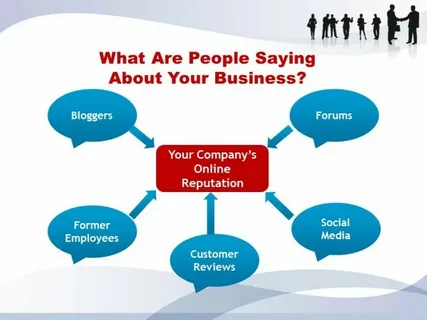Introduction
In today’s digital age, an individual’s online presence plays a crucial role in shaping their reputation. Whether it’s a professional seeking career opportunities or a business aiming to attract customers, maintaining a positive online image is paramount. However, with the vastness of the internet and the speed at which information spreads, managing one’s online reputation can be a daunting task. This is where Online Reputation Management (ORM) services come to the rescue. In this article, we will explore the importance of ORM services and how they help individuals and businesses protect and enhance their digital identity.
The Rise of Online Reputation Management Services
The advent of social media platforms, review websites, and online forums has empowered individuals to voice their opinions about products, services, and other people freely. While this increased connectivity offers numerous benefits, it also exposes individuals and businesses to potential reputation risks. A single negative review or an online smear campaign can significantly impact a person’s career or tarnish a company’s brand image.
In response to these challenges, Online Reputation Management services have emerged. These specialized services employ various strategies and techniques to monitor, control, and improve an individual’s or an organization’s online reputation.
Understanding Online Reputation Management
ORM services encompass a range of activities that revolve around building, maintaining, and restoring a positive online presence. Some key aspects include:
- Monitoring Online Presence: ORM services regularly monitor various online platforms, including social media, search engines, review websites, and news articles, to track mentions and references to a person or brand. This proactive approach helps potential reputation threats at an early stage.
- Dealing with Negative Content: When negative content surfaces, ORM services develop strategies to address the issues effectively. This may involve responding to negative reviews, resolving customer complaints, or requesting content removal (when appropriate).
- Promoting Positive Content: ORM services work towards showcasing positive aspects of an individual or brand through content marketing, search engine optimization (SEO), and social media engagement. By highlighting favorable content, they aim to push down negative search results.
- Reputation Repair and Recovery: In cases where significant damage has already been done to an online reputation, ORM services devise comprehensive plans to repair and rebuild it. This may include public relations efforts, content creation, and ongoing reputation monitoring.
- Brand Protection: ORM services not only manage online reputations but also take preemptive steps to protect brands from potential threats. This involves creating strong online profiles, claiming domain names, and trademark monitoring.
The Benefits of Online Reputation Management Services
- Enhanced Credibility: A positive online reputation enhances the credibility and trustworthiness of individuals and businesses. Potential employers, customers, and partners are more likely to engage with entities that have a strong digital presence.
- Increased Business Opportunities: For businesses, a positive online reputation can lead to increased sales and growth opportunities. Positive reviews and testimonials can influence potential customers’ purchasing decisions.
- Crisis Management: ORM services play a crucial role in crisis management. They can mitigate the impact of negative publicity and help organizations bounce back from challenging situations.
- Personal Branding: ORM services assist individuals in crafting a strong personal brand that aligns with their professional goals. This can be crucial for career advancement and networking opportunities.
- Competitive Advantage: Businesses with a solid online reputation often have a competitive edge over their rivals. A positive reputation can be a key differentiator in a crowded marketplace.
Conclusion
In today’s digital world, managing one’s online reputation is not just an option; it is a necessity. Online Reputation Management services act as guardians, protecting individuals and businesses from potential reputation pitfalls. By diligently monitoring online presence, addressing negative content, promoting positive aspects, and planning for potential crises, these services enable individuals and businesses to maintain a positive digital identity.
In a landscape where a single negative comment can have far-reaching consequences, investing in ORM services is a prudent decision. Whether you’re a professional looking to advance your career or a business aiming to build a strong brand, harnessing the power of ORM services can safeguard your digital identity and pave the way for future success. Remember, in the vast realm of the internet, your reputation is everything, and ORM services are here to ensure it remains unblemished.










